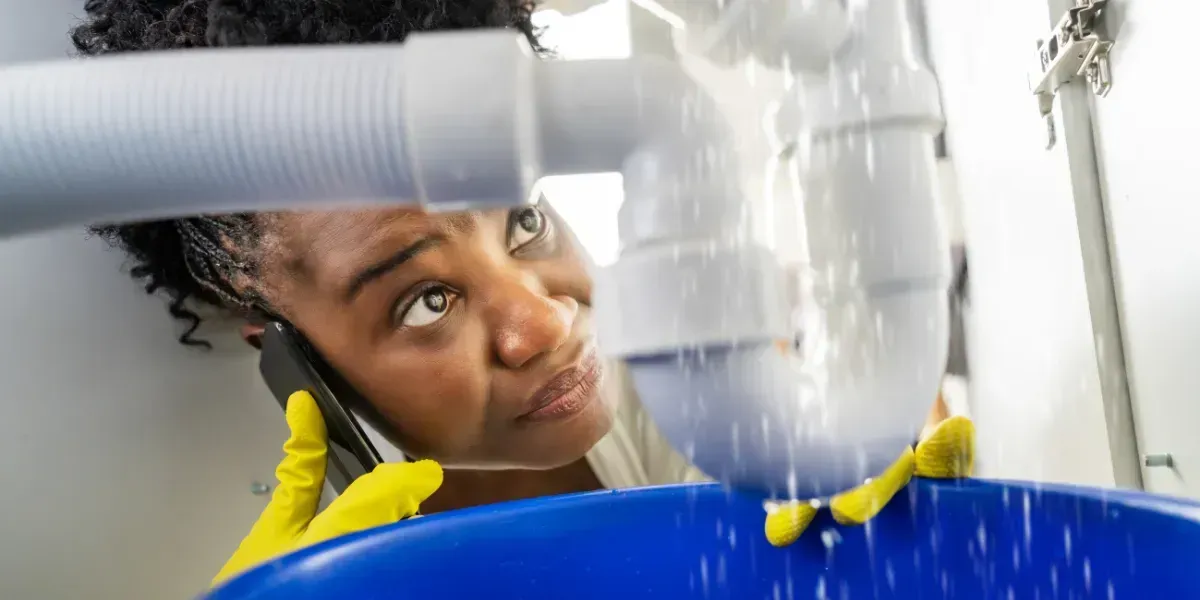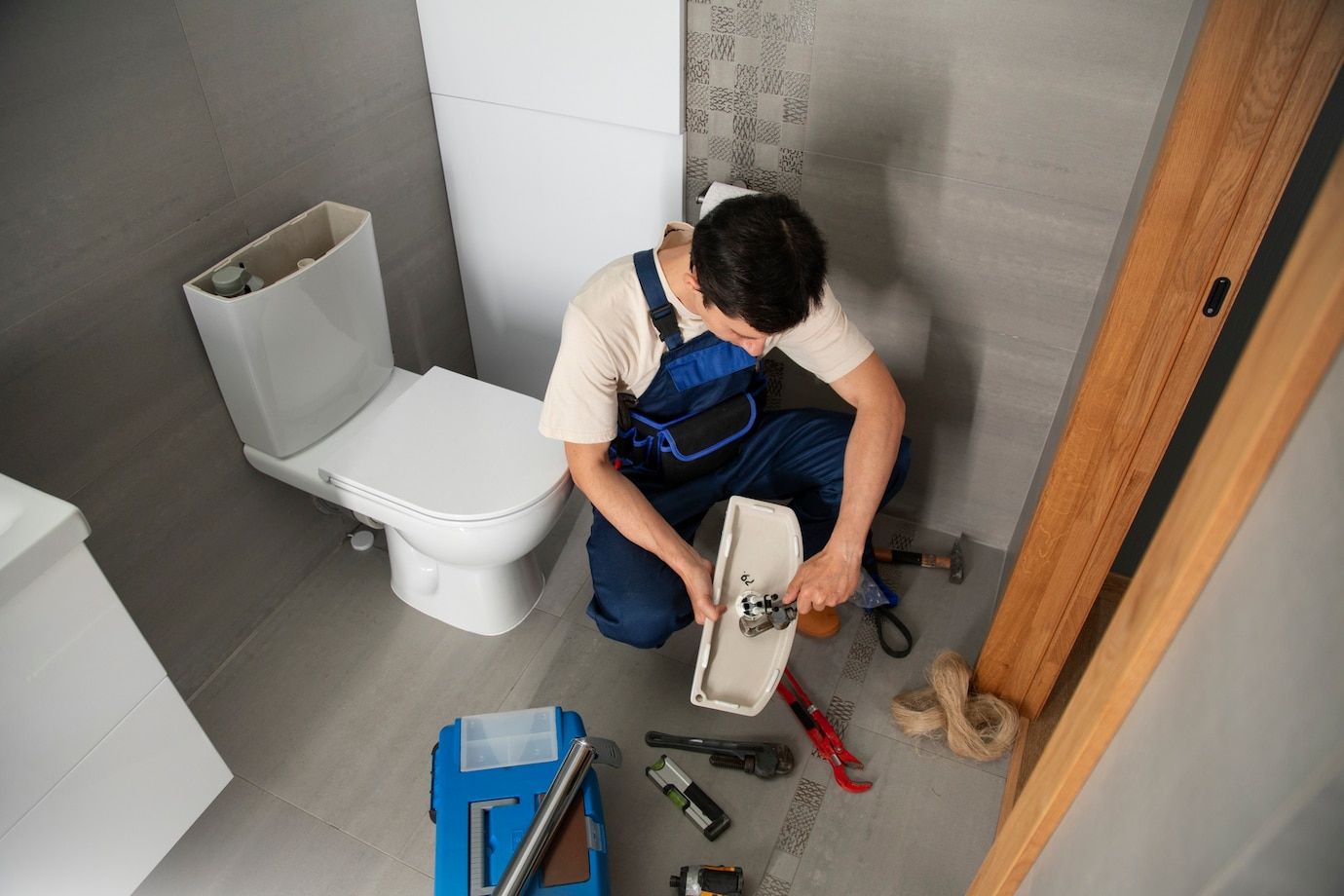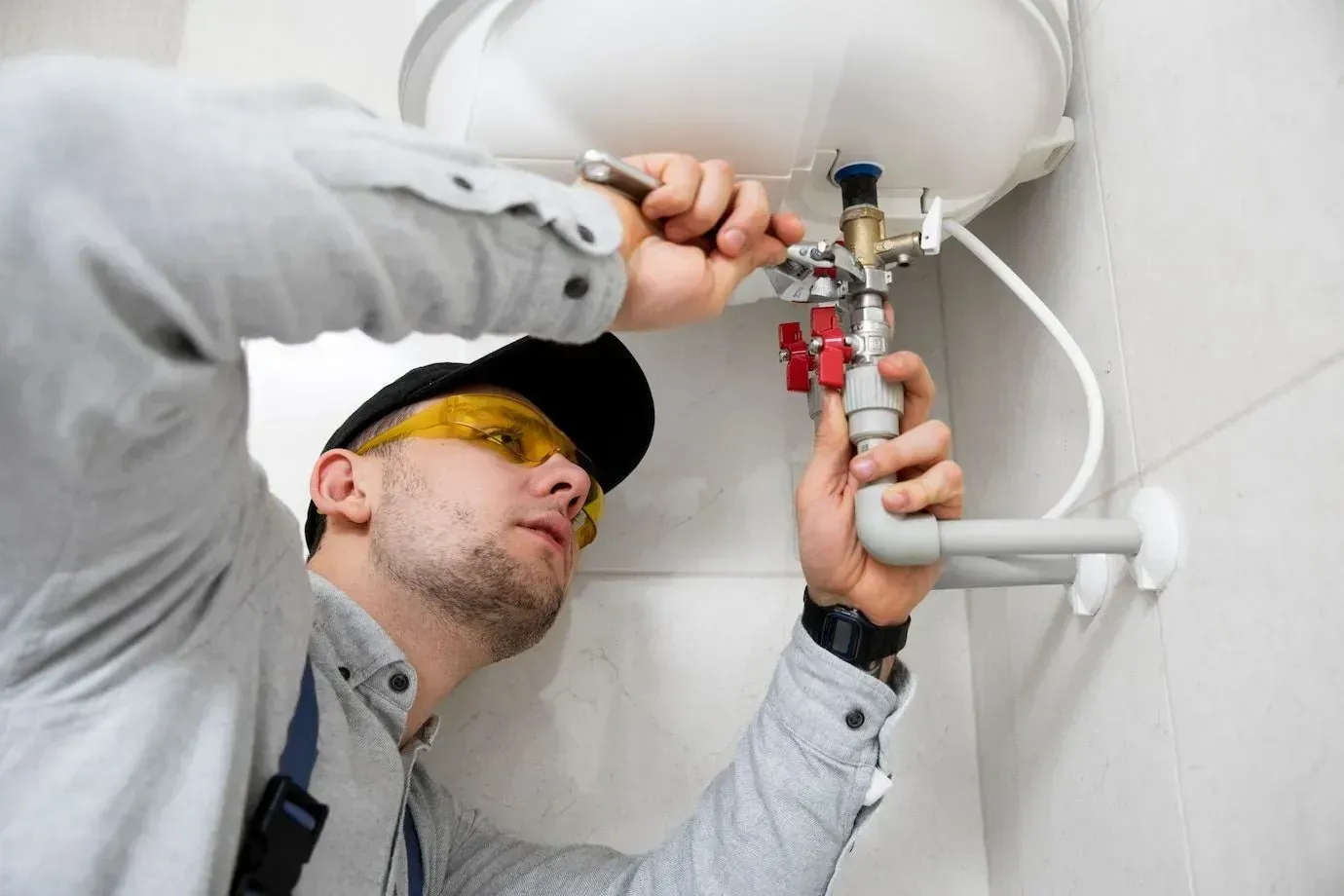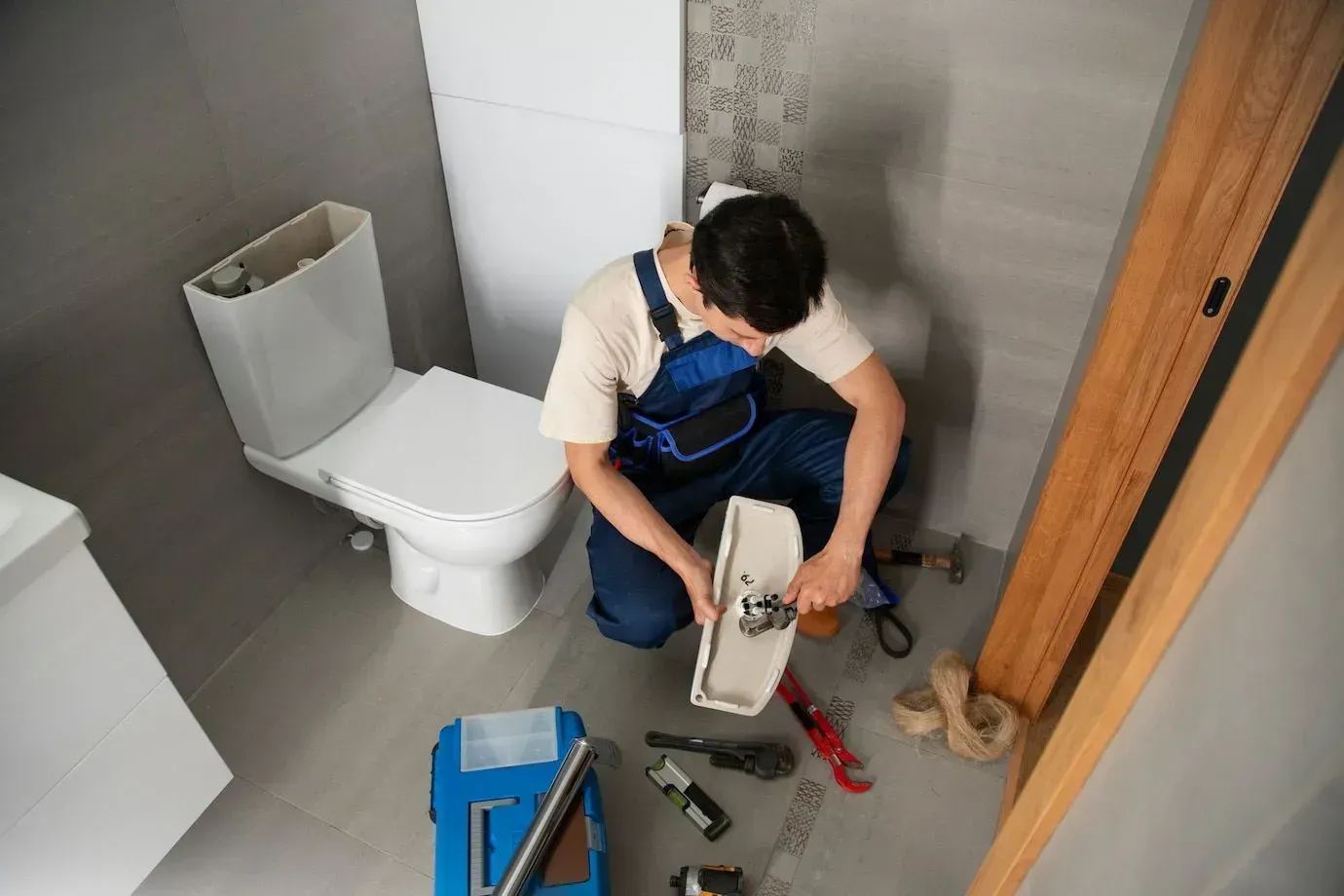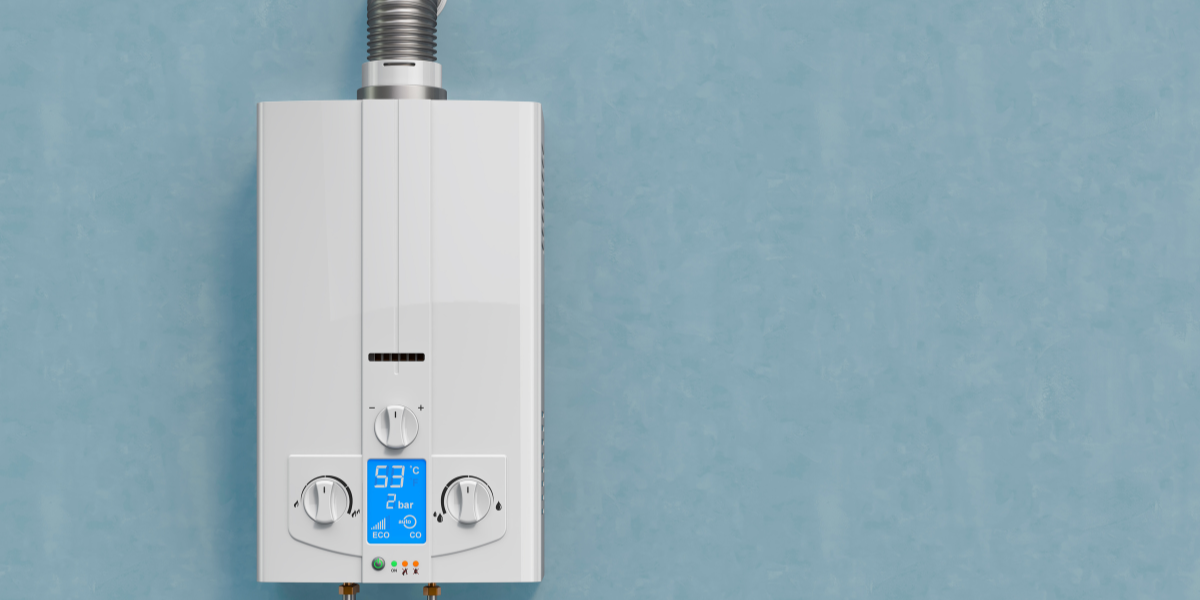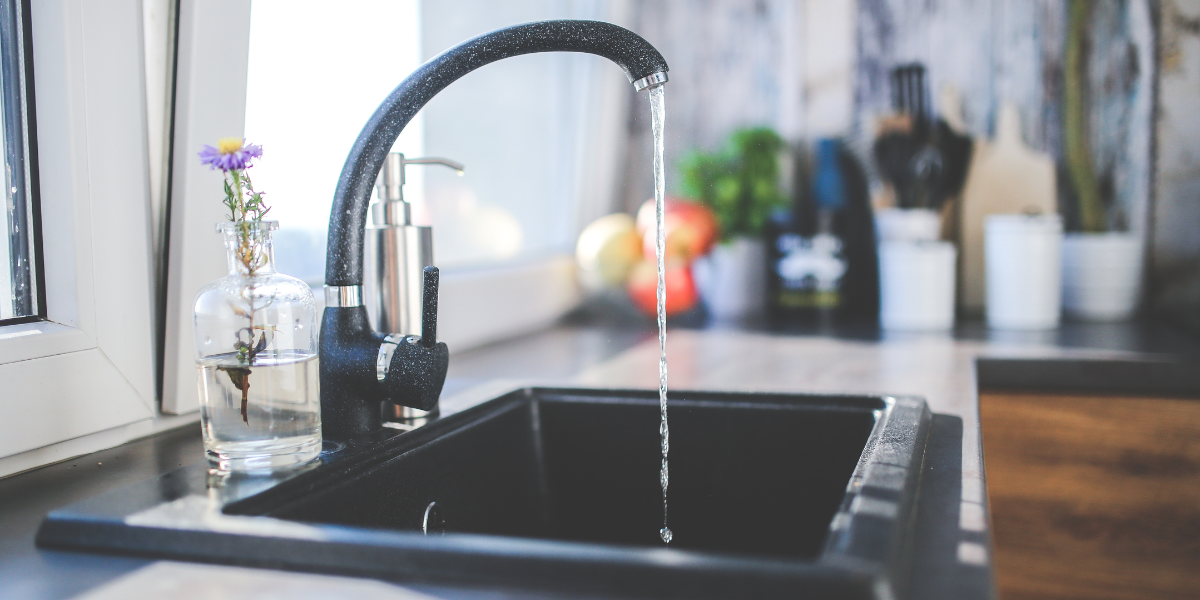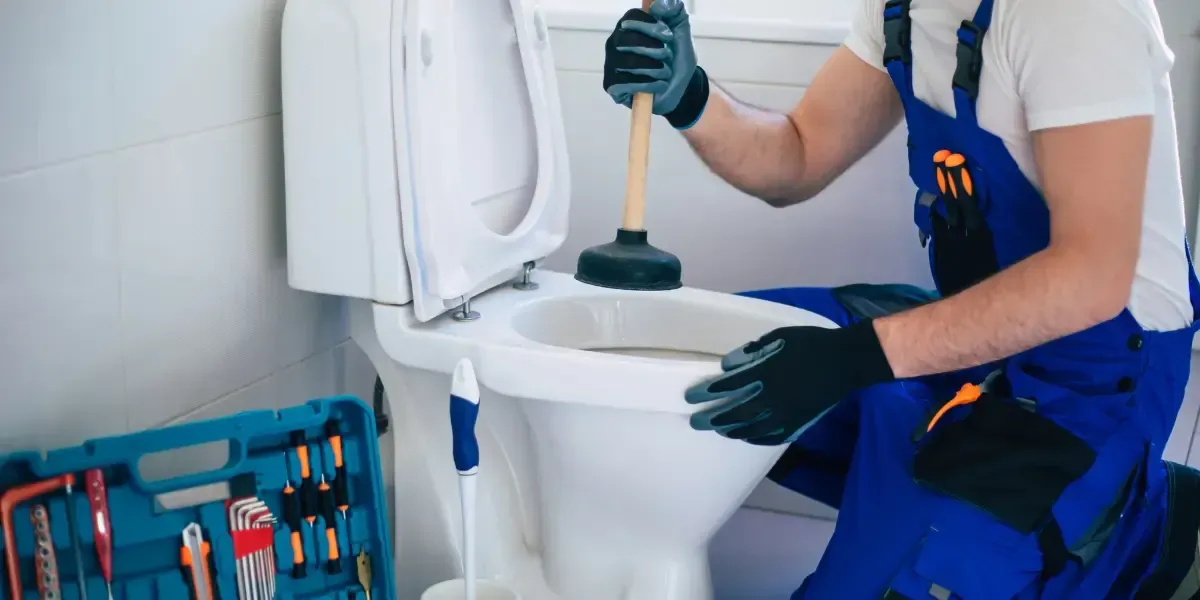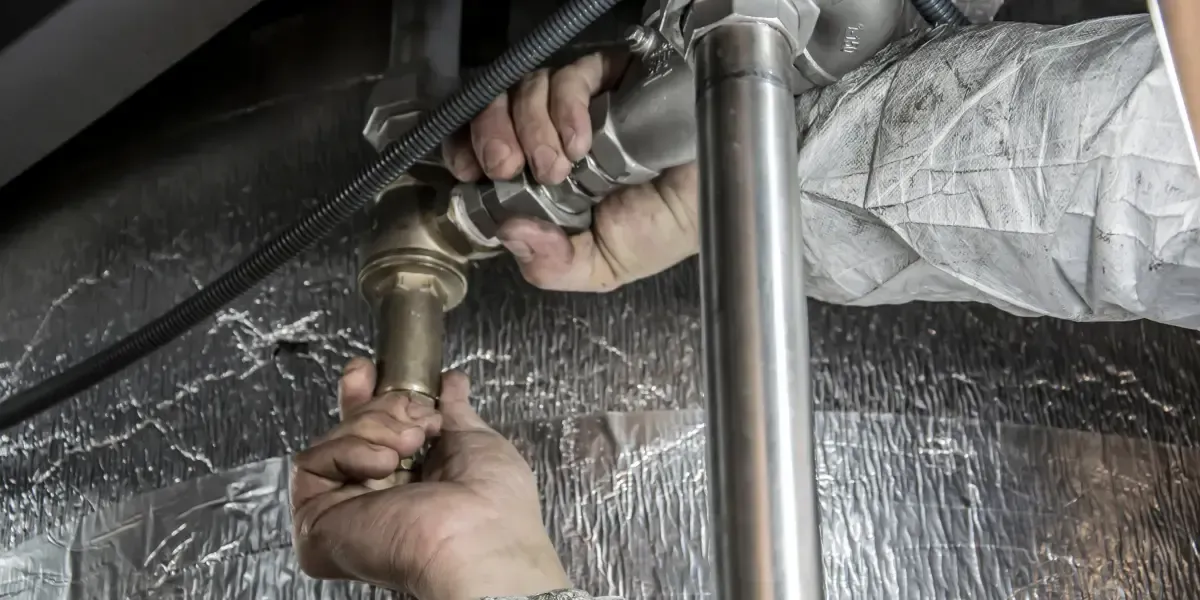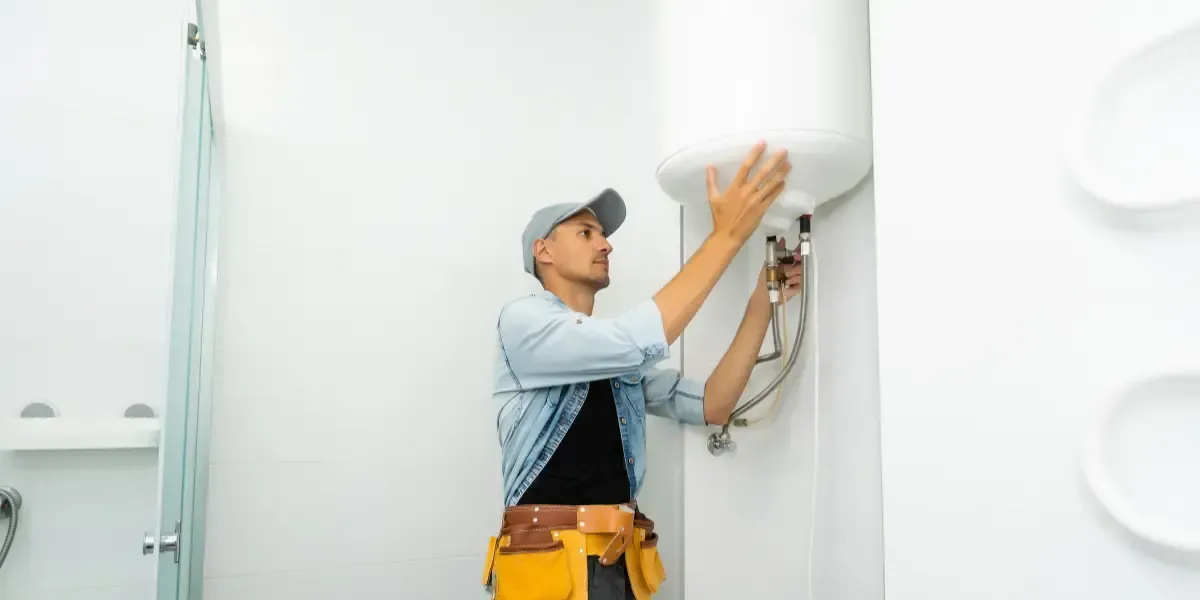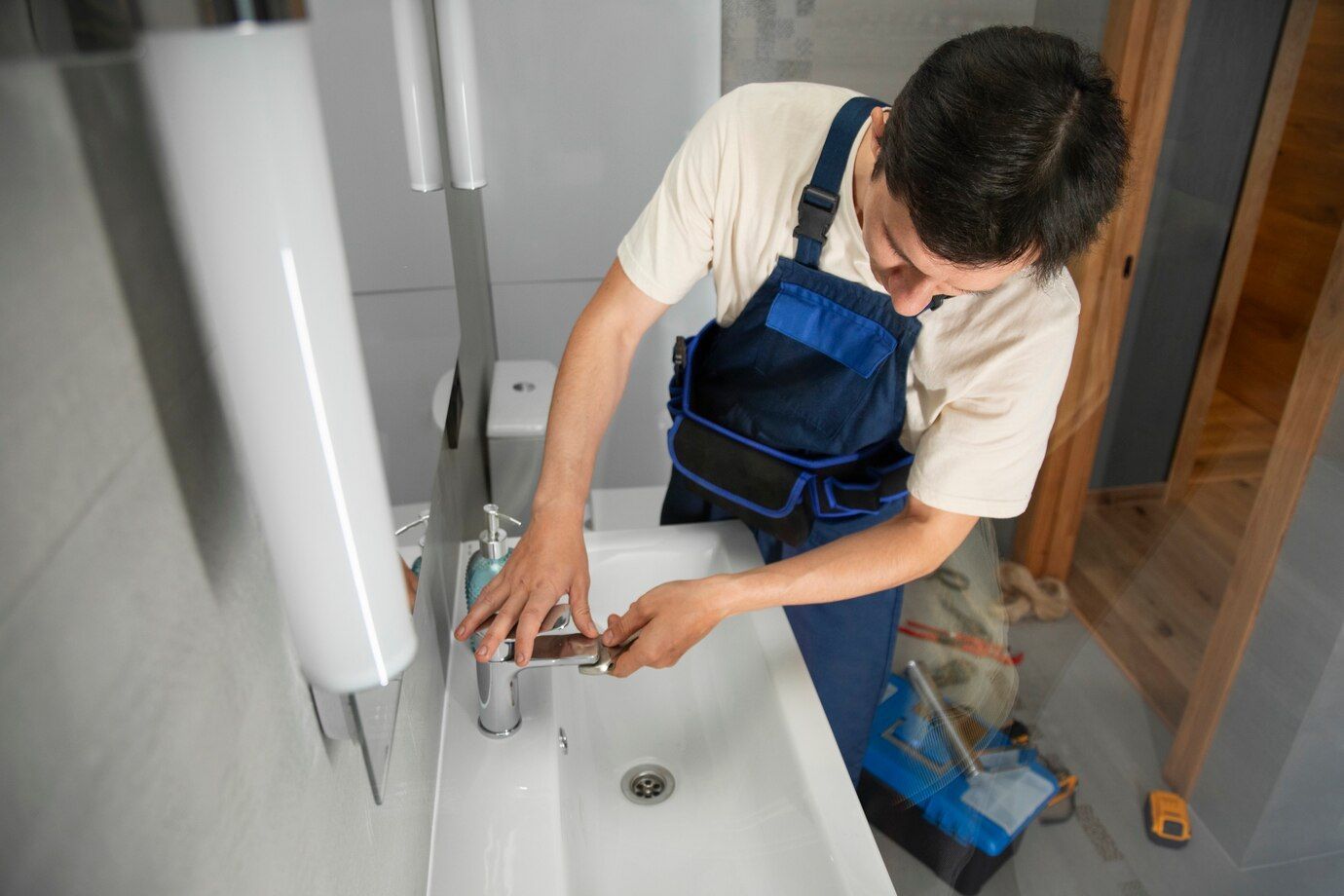A Leaking Water Pipe Can Wreak Havoc: Here’s How to Fix It
Did you know that one leaking water pipe can waste up to 10,000 gallons of water in a year? That's enough to fill a swimming pool in your backyard! Water leaks, even tiny drips or big floods, can hurt your home a lot. This harm can lead to problems with the structure, mold growth, and higher water bills. It is very important to find and fix leaks quickly to keep your home safe and healthy.
This guide will help you find, deal with, and fix common water leaks in your home. We will talk about checking plumbing fixtures and using the right tools to fix leaks for good. You will feel ready to handle any leak that happens.
Key Takeaways
- Water leaks, even small ones, can cause a lot of water damage and higher water bills.
- Finding and fixing leaks soon is important to keep your home safe.
- There are different types of plumbing leaks. Some can lead to flooding and major harm.
- A C-clamp or sleeve clamp can be a good quick fix to stop leaking water.
- It is best to get help from a professional plumber for a proper and lasting pipe repair.
Identifying the Source of the Leak
Finding a water leak is the first step to fix it. Check for signs such as a sudden rise in your water bill. Look for damp spots, mold, or floors that are not flat.
To find the leak, look at your plumbing, pipes, and appliances. This will help you find the problem.
Examining Plumbing Fixtures
Leaky faucets are common. They usually happen because of wear or dirt. Check for dampness in kitchens, bathrooms, or laundry rooms. If your toilet bowl changes color without flushing, it means it is leaking.
Inspecting Pipes
Leaking pipes need a fast repair. You can use a water meter test to spot slow leaks. If the meter moves when all faucets are off, then there is a leak.
Bad smells, mold, or color changes where there is water can also mean there are leaks.
Checking Appliances
Household appliances, like water heaters and dishwashers, can leak, too. To find the leak, turn off each appliance. If a showerhead is leaking, you may need a plumber.
By looking at your plumbing, pipes, and machines, you can spot the leak. Fixing it early can save you money and stop damage.
Temporary Fixes to Manage Water Leakage
It's a good idea to hire a pro for pipe repairs that last. But if you need quick solutions, you can try a c-clamp or sleeve clamp. This can help stop water leaks for a short time. It will work until you can get a better repair done.
Dripping faucets, leaking water heaters, and frozen pipes are common problems. They can waste a lot of water and cause damage if you do not fix them. Leaks from rust, high water pressure, or damage need quick action.
- Rubber patches or repair tapes can cover small leaks or cracks for a short time.
- Epoxy putty makes a lasting seal over time for fixing pipes.
- Pipe wraps or bandages are made to fix cracked pipes for a short time until a lasting solution is ready.
- Self-amalgamating tape offers a good short-term fix for small to medium pipe damage by creating a waterproof seal.
- Silicone tape can handle high heat, chemicals, and moisture. This makes it good for quick pipe fixes.
- Rubberized tape or mastic tape forms a tight seal around broken pipes and can hold up against water and different temperatures.
These quick fixes are only for emergencies. They will hold off until a professional can fix the real issue. Always keep an eye on the repaired area. Get a permanent fix as soon as possible. This will help avoid more damage and costly repairs.
Tools Required for a Permanent Fix
To fix a leaking pipe, you need the right tools. You will need a pipe cutter, a pipe wrench, plumber's putty, and slip-joint pliers. These tools help you cut the pipe, connect it, and seal it. This way, you can make a lasting repair.
A pipe cutter is important for cutting out broken parts. It helps you change the damaged section. A pipe wrench gives you the strength to tighten fittings properly. Plumber's putty fills gaps to prevent leaks.
Slip-joint pliers work well for gripping pipes in small areas. A basin wrench could be useful for connecting faucets. These tools help you fix a pipe leak effectively.
While fixes like plumber's tape or epoxy putty can help, they don't last long. It's better to find a fix that will stay. With the right plumbing tools, such as a pipe cutter, pipe wrench, and plumber's putty, you can repair the leak once and for all.
Step-by-Step Guide to Repairing a Leaked Pipe
Fixing a leaking pipe may feel tough, but you can do it with a clear plan. It is important to know how to repair or replace a pipe. This knowledge can help you avoid further damage.
Start by turning the water supply. Look for the valve under sinks or on toilets. You may also need to turn off the main valve outside your home.
Then, find the place of the leak. Look at the pipes for cracks or weak spots. Once you see where it is, you can begin to fix it.
- Use a cutter or saw to remove the damaged part of the pipe. Make sure the cut is straight and clean.
- Apply a lot of plumbing putty around the leak to seal it.
- Attach the new pipe section to the old system using couplings or fittings. Be sure to follow the instructions.
- Tighten any loose nuts or replace damaged washers to ensure a tight fit.
- For small leaks, use silicone tape, repair sleeves, or epoxy putty for a quick fix.
The steps could change depending on the type and place of the leak. The pipe's material is also important. If it is very hard, you should call a plumber to fix it well.
Preventing Future Pipe Leaks
Keeping your plumbing system in good condition is important for early detection of costly and frustrating water leaks and managing repair costs. By being proactive, you can reduce the chance of potential issues such as corrosion with your pipes and prevent property damage.
Check your plumbing fixtures, pipes, and appliances regularly for wear or damage. Changing old parts can help stop leaks before they begin.
Using
leak detection devices is a clever way to find problems early. These devices can detect small leaks. This helps you fix them before they turn into bigger issues. Additionally, wrapping your pipes in cold areas can prevent leaks and pipe bursts during winter.
- Using insulating pipes can help stop rust. It is good to use wear pads or pipe shoes to keep metal from touching and to make a gap.
- Keeping water at a safe temperature can help prevent rust. Cooler water is better for this.
- A pH level between 6.5 and 8.5 is best to help pipes work well and stop rust.
Keeping water pressure between 30 and 50 PSI helps stop leaks. A pressure above 60 PSI can cause a water hammer, which may lead to leaks. Regular checks by plumbing experts can spot and fix pipe issues. This can lower the risk of leaks.
Taking these steps can help you keep your home safe from plumbing leaks. It will also help your plumbing system work well for a longer time. Remember, stopping leaks is very important for a good plumbing system.
How Express Plumbing and Drain Can Help You
If you have a water leak or any plumbing problem, Express Plumbing and Drain is here for you. Our team has more than 40 years of experience in Miami, Fort Lauderdale, and South Florida. We have licensed and insured plumbers who can fix your problem fast.
Express Plumbing and Drain team uses modern tools, such as water pressure tests and video inspections of pipes. They can locate hidden leaks and damage to your foundation without disturbing your property. We promise to be clear about what needs to be done and when it will happen.
To book an appointment, you can call Express Plumbing and Drain at (954) 763-2520. Our team cares about providing good plumbing services in South Florida. Express Plumbing and Drain want to fix your plumbing system quickly and at a fair price.
Conclusion
Finding and fixing water leaks in your home is important for a healthy living space. You should know the signs of a leak. Using the right tools for repairs is also key. This can help keep your home safe from water damage and save you money over time.
Regular plumbing checks can find leaks early. This helps stop bigger issues from happening. A pressure regulator can help, and insulating pipes in cold areas is useful too. Proper waste disposal and professional plumbing care can stop clogs and other problems.
If you have a water leak, you should act quickly to prevent more damage. Quick solutions like pipe tape and epoxy can work until a long-term fix is in place. Turning off the water, cleaning the area, and getting the pipe ready for repair can make these fixes work better.
By taking care of your plumbing and fixing leaks right away, you help stop water damage to your home. Also, checking for leaks often can keep your place safe and cozy.
Frequently Asked Questions
How do I know if I have a water leak in my home?
You can find a water leak by checking for signs like high water bills, wet spots on walls or floors, the noise of running water when all taps are off, mold growth, or a bad smell. These signs can show there is a hidden leak in your pipes.
What are some common causes of water leaks in residential plumbing?
Describe the item or answer the question so that site visitors who are interested get more information. You can emphasize this text with bullets, italics or bold, and add links.What should I do if I find a leaking pipe?
First, turn off the water supply to stop any more damage. Next, find where the leak is coming from. If it is a small leak, you can use epoxy putty or a pipe clamp as a quick fix. For bigger leaks, you might need to replace the damaged part of the pipe.
Can I fix a leak myself, or should I call a plumber?
For small leaks, like those at joints or in easy-to-reach pipes, you can often fix them yourself. But for big leaks, leaks in hard places to get to, or if you are not sure why it happened, it is better to call a plumber. A plumber has the tools and skills to make long-lasting repairs.
What are some preventive measures I can take to avoid future leaks?
Regularly checking your plumbing for signs of damage is important. Reducing water pressure can help if it's too high. Insulating pipes stops them from freezing. Also, replacing old or rusty pipes is a good idea. A water leak detector can let you know early if there are any leaks.

